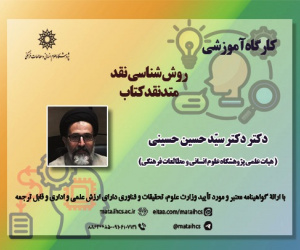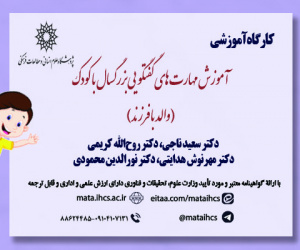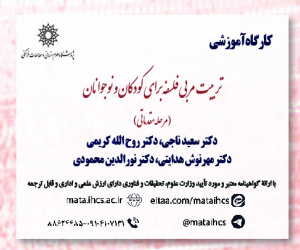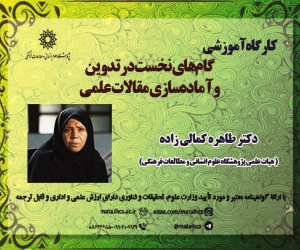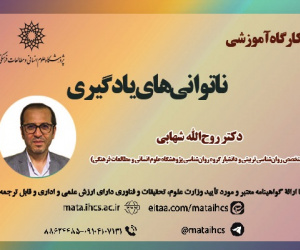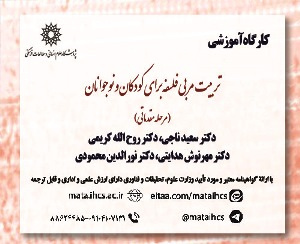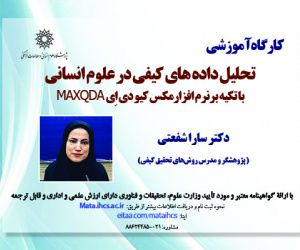شناسایی پیشایندهای رهبری فروتنانه برای مدیران با رویکرد فراترکیب (مقاله علمی وزارت علوم)
درجه علمی: نشریه علمی (وزارت علوم)
آرشیو
چکیده
هدف: در چارچوب سازمانی مدرن که با پیچیدگی زیاد و الزامات سازگاری مشخص می شود، تأکید بیشتر بر جنبه های پایین به بالای رهبری ضروری است؛ رهبرانی معتبرترند که اعتراف می کنند در دنیای پیچیده و ناشناخته، همه پاسخ ها را ندارند. همچنین با گسترش رفتارها و رویدادهای غیراخلاقی، اتخاذ رهبری فروتنانه از جانب مدیران، می تواند در مدیریت اثربخش سازمان ها و کاهش رفتارهای غیر اخلاقی نقش مهمی ایفا کند. با توجه به آنچه بیان شد، پژوهش حاضر با هدف شناسایی پیشایندهای رهبری فروتنانه برای مدیران اجرا شده است. روش: این پژوهش از نظر هدف کاربردی است و با رویکرد کیفی و استفاده از روش فراترکیب هفت مرحله ای سندلوسکی و بارسو (۲۰۰۷) انجام شده است. جامعه آماری این پژوهش، کلیه مطالعات فارسی و انگلیسی ای بوده است که طی سال های ۲۰۰۰ تا ۲۰۲۳ در حوزه پیشایندهای رهبری فروتنانه برای مدیران منتشر شده است. در این راستا، واژگان کلیدی مرتبط با هدف پژوهش جست وجو شد. طی فرایند جست وجو ۱۱۳ مقاله به دست آمد که با استفاده از روش نمونه گیری هدفمند، در نهایت ۱۴ مقاله که از معیارهای ورود به مطالعه برخوردار بود، برای نمونه انتخاب شد. داده های به دست آمده از این مقاله ها با استفاده از روش کدگذاری سه مرحله ای (باز، محوری، انتخابی) و به کمک نرم افزار مکس کیودا ۲۰۰۰ تجزیه وتحلیل شدند. پایایی کدگذاری ها با استفاده از ضریب توافق کاپا با مقدار 92/0 تأیید شد و برای بررسی روایی پژوهش، یافته ها در اختیار 4 نفر از خبرگان تحقیق کیفی قرار گرفت. یافته ها: بر اساس نتایج تحلیل داده ها، ۷۴ کد باز شناسایی شد که در ۱۷ مفهوم و ۴ مقوله دسته بندی شدند. نظر به نتایج مطالعات دست اندرکاران حوزه علوم مدیریت، یکی از ابعاد کلیدی رهبری، خودمدیریتی است که از پیش بین های مهم خود مدیریتی در رهبری فروتنانه، هوش هیجانی، هوش اخلاقی، عاطفه مثبت، تعهد دینی، رفتار معنوی و ویژگی های شخصیتی رهبر شناخته شد. بُعد مهم دیگر رهبری، مدیریت افراد است؛ در این زمینه رهبران فروتن به طور مستقیم بر عملکرد سازمان تأثیر نمی گذارند، بلکه رفتارهایی را اتخاذ می کنند و شرایطی را برای پیروان و تیم ها ایجاد می کنند تا عملکرد خوبی داشته باشند و با تدابیری از جمله غنی سازی کانال های ارتباطی، ویژگی شخصیتی پیروان، پویایی گروه، امنیت روانی و توانمندسازی شناختی، این بُعد را مدیریت می کنند. بُعد کلیدی دیگر در پیش بین های رهبری فروتنانه، نحوه مدیریت سازمان است. نظر به اینکه فروتنی یک ویژگی بین فردی و رابطه محور است، سازمان ها باید اقدام هایی را برای تقویت تعاملات اجتماعی بین پیروان، از طریق راه های رسمی و غیررسمی انجام دهند که با توجه به مطالعات انجام شده، این مهم از طریق تشویق مشارکت، توانمندسازی ساختاری، فرهنگ سازمانی و ارزش های فرهنگی، امکان پذیر است. در نهایت نتایج مطالعات حاکی از آن بود که اثربخشی فروتنی مدیر، به حمایت سازمانی وابسته است؛ تئوری ها و تحقیقات موجود نشان می دهد که هم نقش رهبری مدیر سازمان و هم حمایت مدیریت ارشد، به طور هم زمان برای عملکرد بالای یک پروژه بسیار مهم هستند که با حمایت مدیریت ارشد و انتظارات رهبر از زیردستان، به عنوان پیشایندهای رهبری فروتنانه ایفای نقش می کند. نتیجه گیری: با توجه بررسی های صورت پذیرفته و الگوی به دست آمده، می توان نتیجه گرفت که رهبری فروتنانه، سه سبک رهبری خدمتگزارانه، رهبری تحول آفرین و رهبری اخلاقی را پوشش می دهد. بنابراین اتخاذ رهبری فروتنانه از جانب مدیران، می تواند به رشد و اثربخشی شخص مدیر، پیروان و سازمان منجر شود.Identifying the Antecedents of Humble Leadership for Managers with a Meta-synthesis Approach
Objective
In the contemporary organizational landscape marked by increasing complexity and a demand for adaptability, the emphasis on bottom-up leadership aspects has gained prominence. Leaders who openly acknowledge their limitations in navigating a complex and uncertain world are perceived as more authentic. Additionally, the rising prevalence of unethical behaviors in organizations underscores the necessity for leadership styles that promote integrity and trust. Humble leadership emerges as a crucial approach that can foster ethical behavior, enhance organizational effectiveness, and mitigate unethical practices. This study aims to identify the antecedents of humble leadership among managers to provide insights into fostering this leadership style in organizational contexts.
Methods
This research employed a qualitative approach, leveraging the seven-step hybrid method developed by Sandelowski and Barroso (2007). The study focused on Persian and English publications addressing the antecedents of humble leadership for managers, spanning from 2000 to 2023. Relevant keywords were utilized to systematically search databases, yielding 113 articles. Using purposeful sampling, 14 articles that met the inclusion criteria were analyzed. Data were subjected to three-stage coding (open, axial, and selective) with the assistance of Maxqda 2020 software. The reliability of the coding process was validated using the Kappa coefficient of agreement, which achieved a value of 0.92, signifying high reliability. To ensure validity, the findings were reviewed by four qualitative research experts, providing an additional layer of rigor to the study.
Results
The analysis revealed 90 open codes, categorized into 20 concepts and four overarching categories, reflecting the antecedents of humble leadership. These categories are as follows:
Self-Management: Self-management emerged as a pivotal antecedent of humble leadership. Key predictors in this dimension include emotional intelligence, moral intelligence, positive affect, religious commitment, spiritual behaviors, and the leader's personality traits. These attributes enable leaders to reflect on their actions, maintain ethical standards, and exhibit humility in their leadership approach.
Managing People: Humble leaders influence organizational performance indirectly by fostering an environment conducive to team and individual excellence. Behaviors such as enriching communication channels, fostering psychological safety, promoting group dynamics, and encouraging cognitive empowerment were identified as essential practices. Additionally, the personality traits of followers and the creation of supportive team environments contribute to effective people management under humble leadership.
Organizational Management: As humility is inherently relational, strengthening interpersonal and social interactions within organizations is vital. This involves encouraging participation, implementing structural empowerment, and fostering an organizational culture that values humility. Cultural values and norms that support collaboration and mutual respect further bolster humble leadership practices.
Organizational Support: The study highlighted the role of organizational support as a critical factor for the success of humble leadership. The alignment of top management support with leader expectations toward subordinates enhances the impact of humble leadership on organizational performance. This interplay underscores the necessity of an organizational framework that nurtures humility at all levels.
Conclusion
The findings indicate that humble leadership integrates elements of servant leadership, transformational leadership, and ethical leadership. Managers who adopt humble leadership practices benefit not only from personal growth and improved follower relationships but also contribute significantly to the overall effectiveness and ethical standards of their organizations. By fostering a culture that values humility, organizations can empower leaders to navigate complexity, inspire teams, and drive sustainable success. The study underscores the importance of embedding humility as a core leadership value, with targeted strategies to nurture its antecedents in organizational settings.
